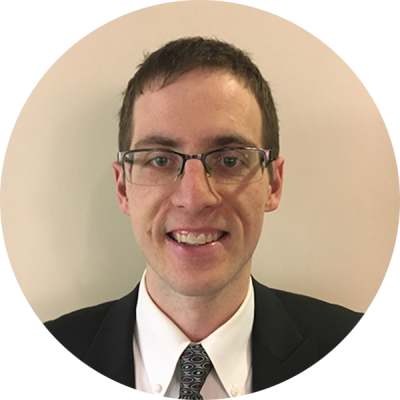
Collin Tokheim
Cancer is fundamentally a disease of the genome. Numerous mutations accumulate in tumors, but only a few specific mutations actually “drive” the growth of cancer cells. We took a data science perspective to distinguish these key mutations by analyzing thousands of human cancer samples across 33 different types of cancer. Through developing novel statistical models that interpret the pattern of mutations observed in cancer, we found new genes and mutations associated with cancer. We found that although particular cancer-associated mutations may occur rarely in patients’ cancers, the overall prevalence of rare cancer-associated mutations suggest they have a critical, underappreciated role in cancer. This may have future implications for precision oncology, where interpretation of a cancer genome will need to be increasingly personalized, since key mutations in a patient’s cancer may have not been previously observed. This work was done in the Rachel Karchin lab (departments of Biomedical Engineering and Oncology and the Institute for Computational Medicine).
Questions & Answers
Why did you choose Johns Hopkins for your work?
My primary research interests were at the intersection of cancer research and data science. I felt biomedical engineering at Johns Hopkins allowed me the unique opportunity to do exactly that.
What does receiving this award mean to you personally and professionally? Do you have any connection with the particular award you received?
It’s a great honor to receive the Martin and Carol Macht Award. Often, research can partly be an individual journey into the less charted areas of science, so to be recognized by senior scientists at Johns Hopkins is especially meaningful. It represents years of hard work and perseverance.
What contributed to your project’s success (special skills, interests, opportunities, guidance, etc.)?
Every great project starts with a great problem. For this, I have to thank Rachel Karchin for her research guidance. I also cannot leave out that having a research fellowship (F31 from NIH/NCI) allowed me the freedom to tackle difficult problems.
What thoughts do you have about Young Investigators’ Day itself, as a celebration of the roles student and fellows play in research at Johns Hopkins?
This award embodies the principle that the future of science starts today by recognizing research from those just beginning their careers. I also hope it encourages others to ponder big questions.
What has been your best/most memorable experience while at Johns Hopkins?
My best experiences have been with my fellow lab members, who have made lab quite fun.
What are your plans over the next year or so?
I will be finishing the process of graduating soon and likely will remain in the lab for a few months while I search for postdoctoral positions.
Tell us something interesting about yourself that makes you unique. Do you have any special hobbies, interests or life experiences?
I’ve bicycled across my home state of Iowa seven times! Hopefully, more states to come.